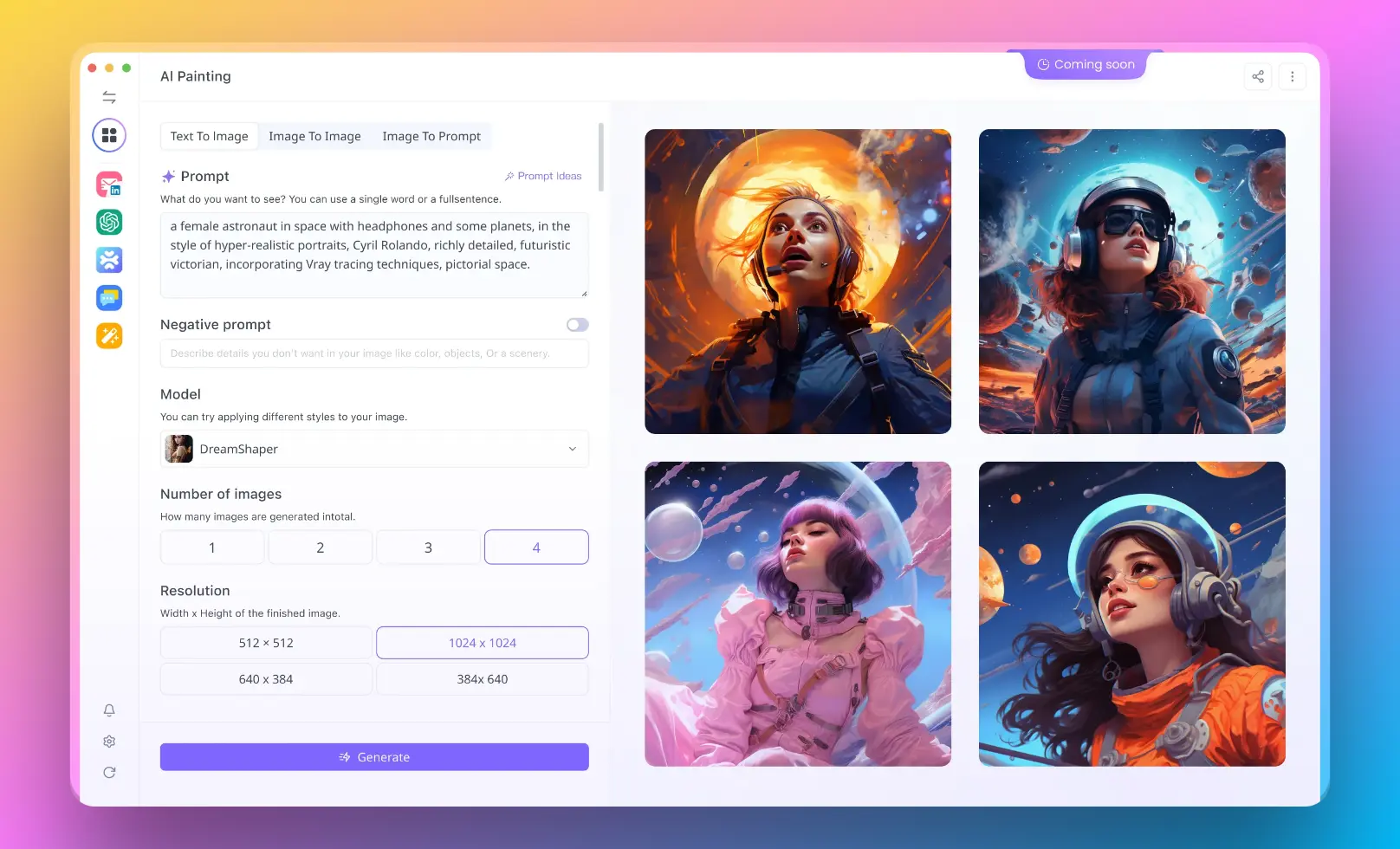Then, You cannot miss out Anakin AI!
Anakin AI is an all-in-one platform for all your workflow automation, create powerful AI App with an easy-to-use No Code App Builder, with Deepseek, OpenAI's o3-mini-high, Claude 3.7 Sonnet, FLUX, Minimax Video, Hunyuan...
Build Your Dream AI App within minutes, not weeks with Anakin AI!

In the ever-evolving landscape of game development, multiplayer functionality has become an essential component for success. Unity, one of the world's leading game development platforms, offers powerful tools for creating and managing multiplayer experiences. At the heart of Unity's multiplayer infrastructure lies the Unity MCP Server, a robust solution designed to handle the complex demands of online gaming. This article explores the Unity MCP Server system, its features, implementation strategies, and best practices for game developers.
Check out HiMCP, where you can find any MCP Server with ease!
What is Unity MCP Server and Why It Matters
The Unity MCP Server (Multiplayer Cloud Platform) represents Unity's comprehensive approach to multiplayer game server hosting and management. As games become increasingly complex and player expectations rise, developers need scalable, reliable server solutions that can handle everything from matchmaking to real-time gameplay. The Unity MCP Server ecosystem provides the infrastructure necessary for creating seamless multiplayer experiences across various platforms and player counts.
Unity's approach combines the performance benefits of dedicated servers with the flexibility of cloud-based solutions, allowing developers to focus on creating engaging gameplay rather than wrestling with backend infrastructure. With the ability to handle millions of concurrent players while maintaining high performance, Unity MCP Server has become the backbone for many successful multiplayer titles.
Core Features of Unity MCP Server Technology
The Unity MCP Server system comes with a robust set of features designed to address the common challenges in multiplayer development:
Automated Orchestration in Unity MCP Server
One of the standout capabilities of the Unity MCP Server is its automated orchestration system. This feature dynamically scales server resources based on player demand, ensuring optimal performance during peak hours while conserving resources during quieter periods. The system monitors player counts and server loads in real-time, automatically deploying additional resources when needed and scaling back when demand decreases.
Hybrid Cloud Architecture of Unity MCP Server
The Unity MCP Server utilizes a hybrid scaling approach that combines the raw processing power of bare metal servers with the flexibility of cloud resources. This dual approach allows games to leverage the higher clock speeds and dedicated resources of physical hardware while still benefiting from the elasticity of cloud infrastructure. The result is a more cost-effective solution that delivers superior performance.
SDK Integration with Unity MCP Server
Implementing the Unity MCP Server in your game is streamlined through dedicated SDKs and CLI tools. These integration points allow developers to incorporate server functionality with minimal code changes, regardless of the game engine being used. While Unity-built games enjoy particularly seamless integration, the platform supports games developed with any engine, making it a versatile choice for studios with diverse technology stacks.
Setting Up Your Unity MCP Server Environment
Creating a functional multiplayer infrastructure with Unity MCP Server involves several key steps that developers need to understand:
Initial Configuration of Unity MCP Server
The setup process begins with establishing your Unity MCP Server environment through the Unity Dashboard. This involves creating a project, configuring basic server parameters, and defining your initial capacity needs. The dashboard provides intuitive tools for monitoring performance, managing server instances, and tracking resource utilization once your infrastructure is operational.
Deployment Strategies for Unity MCP Server
Effective deployment is crucial for maintaining performance and controlling costs in your Unity MCP Server implementation. Best practices include setting up staging environments for testing, implementing canary deployments for major updates, and utilizing Unity's fleet management tools to distribute server loads geographically based on player locations. These approaches help minimize latency and provide the most responsive experience possible.
Security Considerations for Unity MCP Server
Protecting your Unity MCP Server infrastructure from threats is essential for maintaining game integrity and player trust. The platform includes robust security features like DDoS protection, encryption for sensitive data, and authentication mechanisms to prevent unauthorized access. Implementing proper security practices within your game code is equally important, especially for handling player data and preventing cheating.
Advanced Unity MCP Server Features for Game Optimization
Beyond basic server hosting, Unity MCP Server offers sophisticated tools for enhancing gameplay and operational efficiency:
Matchmaking Through Unity MCP Server
The integrated matchmaking capabilities of Unity MCP Server allow developers to create sophisticated player grouping rules based on skill levels, geographic location, and custom parameters. The system supports A/B testing of different matchmaking algorithms, helping developers optimize the player experience through data-driven decision making.
Analytics Integration with Unity MCP Server
Understanding player behavior and server performance is critical for ongoing optimization. The Unity MCP Server platform connects seamlessly with Unity Analytics, providing insights into matchmaking effectiveness, server utilization, player retention, and more. These analytics help developers identify bottlenecks, understand player preferences, and make informed decisions about future development.
Quality of Service in Unity MCP Server Networks
The Quality of Service (QoS) features in Unity MCP Server automatically route players to the optimal server region based on ping times and connection stability. With over 290 data center locations worldwide, the system can place players on servers that provide the lowest latency experience, regardless of their geographic location.
Scaling Your Game with Unity MCP Server Architecture
Growth presents unique challenges for multiplayer games, but Unity MCP Server is designed to accommodate expansion from small indie titles to massive commercial successes:
From Prototype to Production with Unity MCP Server
Many developers begin with a small-scale Unity MCP Server implementation during development and early access phases. The platform's flexibility allows for seamless scaling as player numbers grow, without requiring fundamental architecture changes. This gradual approach helps manage costs during development while ensuring readiness for success at launch.
Managing Peak Traffic with Unity MCP Server
Special events, promotions, and game launches can create sudden spikes in player numbers that test server infrastructure. Unity MCP Server's elastic scaling capabilities automatically respond to these surges, deploying additional resources to maintain performance during peak periods. This responsiveness prevents the frustrating server crashes and queue times that often plague popular titles during high-demand periods.
Cost Optimization in Unity MCP Server Deployments
While scalability is important, controlling costs remains a priority for developers. Unity MCP Server offers tools for balancing performance and expenses, potentially reducing hosting costs by 30-40% compared to traditional solutions. The hybrid approach ensures you're not overpaying for resources during quiet periods while maintaining capacity for busy times.
Industry Case Studies of Unity MCP Server Success
The effectiveness of Unity MCP Server is demonstrated through its adoption by numerous successful titles across different genres and scales:
Battle Royale Games Powered by Unity MCP Server
The battle royale genre presents particular challenges for server infrastructure due to high player counts and complex physics interactions. Games like Apex Legends have leveraged Unity MCP Server to scale rapidly, with Respawn Entertainment's title growing from zero to 50 million players in under 24 days with reliable performance throughout.
MMO Implementations of Unity MCP Server
Massively multiplayer online games require persistent worlds with consistent performance across diverse player activities. Unity MCP Server's architecture supports the complex demands of MMO environments, from instance dungeons to large-scale world events, all while maintaining the stable experience players expect.
Indie Success Stories Using Unity MCP Server
The accessibility of Unity MCP Server has allowed smaller development teams to create multiplayer experiences that compete with larger studios. With straightforward setup processes and predictable pricing models, indie developers can incorporate sophisticated multiplayer features without the traditional backend expertise or infrastructure investments that were once required.
The Future of Unity MCP Server Technology
As multiplayer gaming continues to evolve, so does the Unity MCP Server ecosystem:
Emerging Trends in Unity MCP Server Development
The platform continues to adapt to industry trends, with ongoing improvements in areas like cross-platform play, blockchain integration, and support for persistent player-driven worlds. These advancements ensure that Unity MCP Server remains at the forefront of multiplayer technology, ready to support the next generation of innovative gameplay experiences.
Unity MCP Server and the Metaverse Connection
As concepts of connected virtual worlds gain traction, Unity MCP Server is positioning itself as infrastructure for metaverse-adjacent experiences. The scalable nature and advanced networking capabilities make it suitable for supporting persistent, interactive environments where players can seamlessly move between different experiences.
Conclusion
The Unity MCP Server represents a comprehensive solution for developers looking to create engaging multiplayer experiences without becoming overwhelmed by backend infrastructure concerns. By combining powerful features like automated orchestration, hybrid scaling, and sophisticated matchmaking with an accessible implementation path, Unity has democratized multiplayer development for studios of all sizes.
Whether you're developing a small cooperative experience or planning the next breakthrough battle royale title, understanding and leveraging Unity MCP Server capabilities can provide the foundation for success. As the gaming landscape continues to emphasize connected experiences, having a robust, scalable server solution becomes not just an advantage but a necessity for competitive game development.



